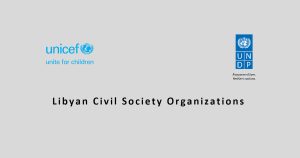Brussels-Rome, 25 June 2020
On 24 June, the Kosovo Specialist Prosecutor’s Office (SPO) issued a press statement that they had filed a 10-count indictment with the Kosovo Specialist Chambers (KSC) against President of the Republic of Kosovo, Hashim Thaçi, and the President of the Kosovo Democratic Party, Kadri Veseli, among others with a range of crimes against humanity and war crimes, including murder, enforced disappearance of persons, persecution, and torture some two months earlier. The KSC is a judicial body established, with encouragement by the Council of Europe, by the Kosovo Parliament in response to the so-called “Marty Report”, which detailed allegations of inhuman treatment and disappearance of people, illicit trafficking in human organs and other crimes allegedly committed by members of the Kosovo Liberation Army between 1998 and 2000.
Indictments at the KSC are subject to confirmation by a judge, who examines the charges brought by the SPO and decides whether or not each charge is confirmed or dismissed. According to the KSC’s internal rules, this process is usually confidential and an indictment is only made public once charges are confirmed. There is an exception, in that the Specialist Prosecutor “may disclose an indictment … if deemed necessary for the purposes of an investigation or prosecution”.
The charges against President Thaçi and Mr Vaseli are not an indictment, as they have yet to be confirmed by a judge, so normally they would be confidential. The press release from the SPO states it is making the charges known publicly because, according to them, President Thaçi and Mr Vaseli are attempting to “obstruct and undermine” the work of the KSC, including overturning the law establishing the KSC and other unspecified actions.
The Government of Kosovo issued a statement stating that “no one should be considered guilty without a final decision by the Court”, urging its citizens to remain calm. The statement further notes the Government’s belief that “the war of the people of Kosovo and Kosovo Liberation Army was just and for its freedom”.
Other reactions to the SPO’s press statement have varied, as do attitudes towards the KSC itself. Some have spoken of the rights of victims to redress and that the acts outlined in the Marty Report and charged by the SPO demand accountability. Some have questioned whether this might be another “bite at the cherry”, as the International Criminal Tribunal for the former Yugoslavia was unable to prosecute former KLA commanders successfully. Others view the KSC in general as an attempt to undermine Kosovo itself by going after the KLA heroes who fought for Kosovo in the 1990s and secured its liberation.
Particularly on this last point, it is not clear how making as yet untested allegations against two former leaders of the KLA will do much to enhance the KSC’s reputation, especially in Kosovo. This will be an important case to follow in the coming weeks and months, to see what the judge will decide – namely whether the SPO has presented sufficient material to demonstrate a well-grounded suspicion that President Thaçi and Mr Vaseli committed the crimes alleged against them. How the KSC handles this matter will be a litmus test for how it is perceived in Kosovo, Serbia and the region and lay the foundation for whether it will ultimately be considered a court that has acted fairly, un-politically and independently. Watch this space.
For further information, contact Alison Smith, Director Of International Justice, on asmith@npwj.org or Nicola Giovannini, Press & Public Affairs Coordinator, on ngiovannini@npwj.org org.




